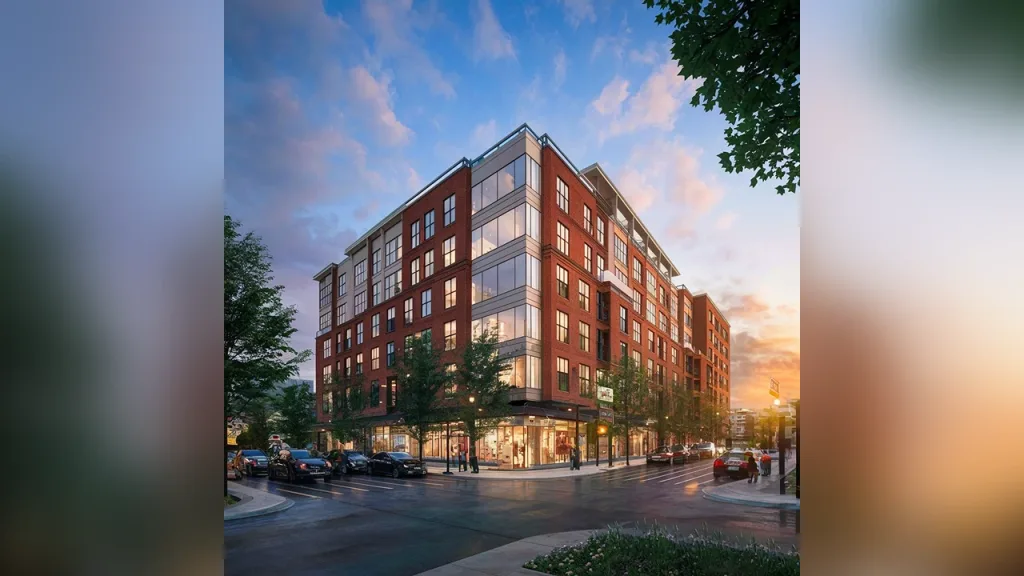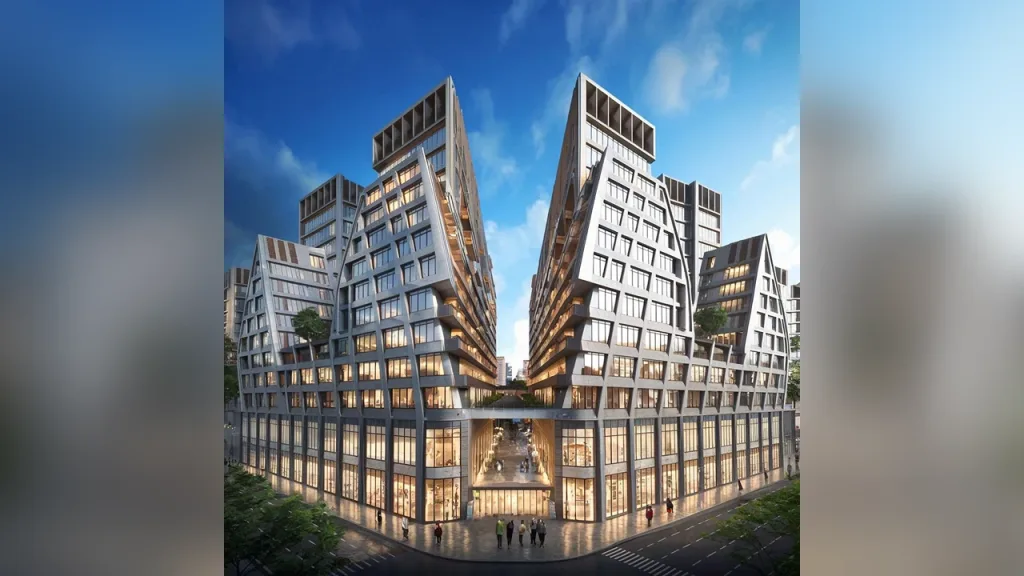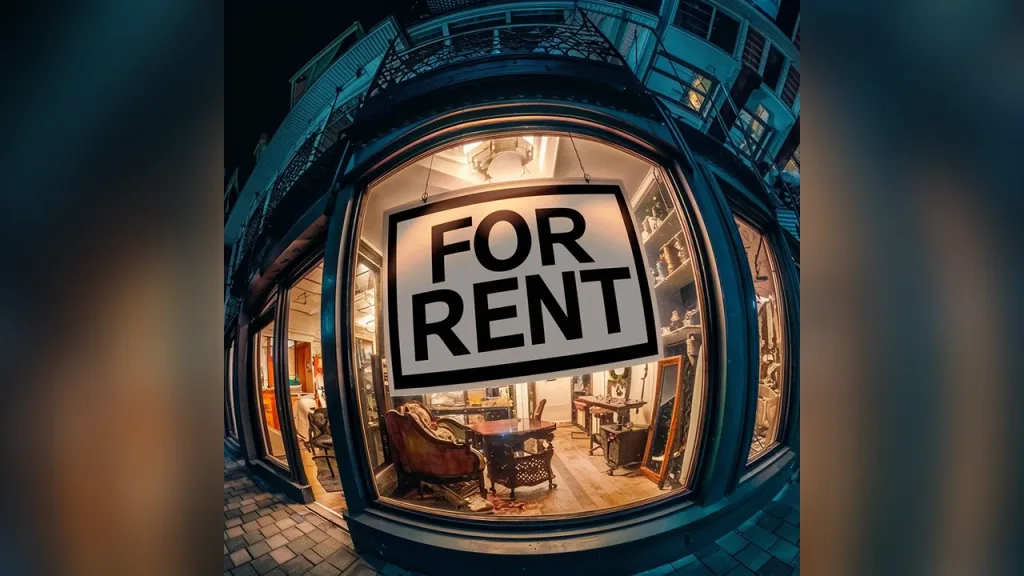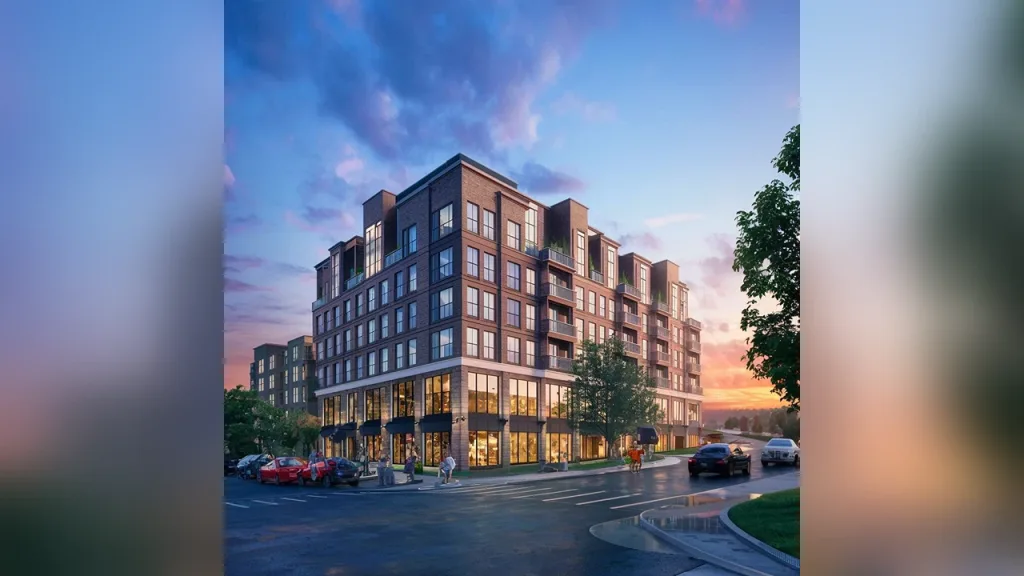The landscape of real estate investment is constantly evolving, and mixed-use properties are emerging as a dynamic and lucrative option for both investors and business owners.
These versatile properties combine residential and commercial spaces under one roof, creating vibrant communities and offering unique investment opportunities.
However, navigating the financing aspect of mixed-use properties can be more complex compared to traditional residential or commercial investments.
We will equip you with the knowledge and insights needed to confidently navigate the mixed-use property financing landscape.
Understanding Mixed-Use Properties

What are mixed-use properties? They are developments that integrate residential units with various commercial spaces, such as:
- Retail stores
- Office spaces
- Restaurants
- Fitness centers
- Entertainment venues
These properties can take diverse forms, from high-rise buildings with apartments and ground-floor retail to mixed-use communities with townhouses, offices, and community spaces.
Benefits of investing in mixed-use properties:
- Diversification: Mixed-use properties offer a diversified income stream, mitigating risk by not relying solely on one type of tenant.
- Increased income potential: Combining residential and commercial rents can lead to higher potential returns compared to single-use properties.
- Walkable communities: Mixed-use developments often create vibrant and walkable communities, attracting residents and businesses alike.
- Appreciation potential: The unique value proposition of mixed-use properties can foster stronger appreciation potential compared to traditional properties.
Financing Options for Mixed-Use Properties

Financing mixed-use properties requires a comprehensive understanding of the available options and their unique characteristics. Here, we explore the key mixed-use property financing options:
1. Traditional Commercial Real Estate Loans:
- Offered by commercial lenders and banks.
- Subject to commercial real estate loan requirements, which can be stricter than residential loans.
- Options include 30-year fixed-rate FHA loans and competitive fixed-rate and adjustable loans.
2. Government-Backed Mixed-Use Loans:
- Provided by government agencies like the Small Business Administration (SBA) and the USDA Rural Development.
- Offer attractive terms and can be easier to qualify for compared to traditional commercial loans.
- Programs like the SBA 7(a) loan and USDA Rural Development loans can be suitable for mixed-use projects in specific areas.
3. Private Lenders and Alternative Financing Options:
- Offered by private lenders and specialize in flexible financing solutions.
- Hard money loans and bridge loans can be suitable for specific situations, but often come with higher interest rates and shorter terms.
Choosing the right financing option for your mixed-use property requires careful consideration of factors such as:
- Property type and size
- Loan-to-value ratio (LTV)
- Debt service coverage ratio (DSCR)
- Your credit score and financial history
It’s crucial to consult with a qualified financial professional with ROK Financial who can guide you through the financing process and help you select the most suitable option for your specific needs.
Qualifying for Mixed-Use Property Financing

Securing financing for your mixed-use property requires meeting specific qualification criteria set by lenders. Here are some key aspects to understand:
1. Credit Requirements:
- Lenders typically have minimum credit score requirements for mixed-use financing, often ranging from 620 to 640.
- Borrowers with credit blemishes may still qualify with a strong business plan and sufficient collateral.
- Lenders will also consider your credit history and ability to manage debt responsibly.
2. Debt Service Coverage Ratio (DSCR) and Loan-to-Value Ratio (LTV):
- DSCR: This ratio measures your ability to service your debt obligations by comparing your net operating income (NOI) to your annual debt payments. A higher DSCR indicates a lower risk for lenders.
- LTV: This ratio compares the loan amount to the property’s appraised value. Lower LTV ratios are generally more favorable for borrowers as they represent less risk for the lender.
3. Documentation Requirements:
- The specific documentation required may vary depending on the lender and loan program. However, some common documents include:
- Personal and business tax returns
- Financial statements
- Business plan
- Property appraisals
- Lease agreements (if applicable)
Additional factors that can influence your loan approval:
- Experience in real estate development or business ownership
- Strength of your business plan and market analysis
- Collateral offered to secure the loan
Choosing the Right Loan for Your Mixed-Use Property

Navigating the diverse landscape of mixed-use property financing requires careful consideration of your specific needs and project characteristics.
Here, we explore key factors to help you choose the most suitable loan:
1. Factors to Consider:
- Property type and size: Different loan programs cater to various property types, such as high-rise developments, townhouses, or mixed-use communities. Loan terms and eligibility criteria might differ based on property specifics.
- Loan program requirements: Each loan program has unique requirements regarding credit score, DSCR, LTV, and documentation. Ensure you thoroughly understand the specific requirements before applying.
- Loan terms: Carefully evaluate factors like interest rate, loan term (length), and prepayment penalties. Choose a loan with terms that align with your investment goals and financial capacity.
- Loan approval process: Understand the typical timeline and steps involved in the loan approval process for your chosen program. This helps you plan and manage your project timeline effectively.
2. Consulting with a Financial Professional:
The complexity of mixed-use property financing makes seeking guidance from a qualified financial professional highly recommended. They possess the expertise to:
- Analyze your financial situation and project needs
- Recommend suitable loan options based on your specific circumstances
- Negotiate favorable loan terms with lenders
- Guide you throughout the loan application and approval process
Their expert advice can save you time, money, and ensure you secure the optimal financing solution for your mixed-use property development.
Here’s a table summarizing the key considerations when choosing a mixed-use property loan:
| Factor | Description |
|---|---|
| Property type and size | Consider loan programs tailored to your specific property type. |
| Loan program requirements | Ensure you meet the credit, DSCR, LTV, and documentation requirements for the chosen program. |
| Loan terms | Evaluate interest rates, loan terms, and prepayment penalties before making a decision. |
| Loan approval process | Understand the timeline and steps involved in the loan approval process. |
| Financial professional consultation | Seek guidance from a qualified professional for expert advice and support. |
By meticulously considering these factors and seeking professional guidance, you can confidently select the optimal mixed-use property financing solution that propels your investment journey forward.
Maximizing Revenue Potential Through Mixed Use Property Financing

Leveraging Additional Collateral
In the realm of commercial real estate financing, offering additional collateral can significantly enhance borrowing capacity and terms.
Mixed-use properties, especially those incorporating building with ground floor retail spaces, often possess ancillary assets that can serve as additional collateral.
By leveraging these assets, borrowers can negotiate more favorable terms and access higher loan amounts, thereby maximizing their revenue potential.
Optimizing Ground Floor Retail
Ground floor retail spaces in building with office space represent valuable opportunities for maximizing revenue streams.
These spaces, strategically leased to high-traffic businesses, can generate substantial rental income.
Moreover, a vibrant retail scene not only attracts customers but also enhances the overall appeal of mixed-use developments, fostering a dynamic and lucrative environment for businesses and tenants alike.
Tailoring Levels for Apartment Buildings
The configuration of levels for apartment buildings within mixed-use developments requires careful consideration to optimize revenue potential.
By tailoring apartment layouts to align with market demand and demographic trends, developers can maximize rental yields and occupancy rates.
Incorporating amenities and communal spaces adds value to residential units, enhancing their attractiveness to tenants and bolstering long-term revenue streams.
Mitigating Risks Through Strategic Planning

Assessing Debt-Service Coverage Ratio
A critical aspect of mixed use property financing is evaluating the debt-service coverage ratio (DSCR) to mitigate risks effectively.
Lenders use this metric to assess the property’s ability to generate sufficient cash flow to cover debt obligations.
By maintaining a healthy DSCR, developers can demonstrate financial stability, instilling confidence in lenders and investors and minimizing the risk of default.
Strategic Tenant Selection
Strategic tenant selection is paramount in mitigating vacancy risk and ensuring a stable income stream for mixed-use properties.
Complexes with office space and building with ground floor retail spaces must attract long-term, creditworthy tenants.
By carefully curating a tenant mix that complements the surrounding community and caters to diverse needs, developers can minimize turnover and maintain consistent rental income, thereby reducing overall risk exposure.
Long-Term Value Preservation
Preserving the long-term value of mixed-use properties requires proactive asset management strategies.
Regular maintenance, updates, and tenant engagement initiatives are essential components of commercial real estate financing.
By investing in property enhancements and fostering positive tenant relationships, developers can enhance property value, attract quality tenants, and ensure sustained revenue generation over time.
Regulatory Compliance and Due Diligence
Navigating Regulatory Requirements
Compliance with zoning regulations and building codes is crucial in mixed use property financing.
Developers must conduct thorough due diligence to ensure that proposed developments comply with local ordinances and land-use policies.
By proactively addressing regulatory requirements, developers can mitigate legal risks, avoid costly delays, and maintain project momentum.
Environmental Considerations
Environmental factors play a significant role in mixed use property financing, necessitating thorough environmental assessments and mitigation measures.
Developers must assess potential environmental risks, such as contamination or ecological impact, before proceeding with projects.
By addressing environmental concerns upfront, developers can minimize liability, safeguard project viability, and maintain stakeholder confidence.
Engaging Stakeholders
Successful mixed use property financing requires collaboration with various stakeholders, including local governments, community groups, and regulatory agencies.
Engaging stakeholders early in the development process fosters transparency, builds goodwill, and mitigates opposition.
By soliciting input, addressing concerns, and fostering positive relationships, developers can navigate approval processes more effectively and enhance project acceptance.
Additional Considerations for Mixed-Use Property Financing

Beyond the core aspects of qualification and loan selection, several additional considerations influence the success of your mixed-use property financing journey.
Let’s explore these crucial factors:
1. Zoning and Regulation:
Zoning regulations establish the permitted uses for a property within a specific area. These regulations significantly impact the feasibility and financing of your mixed-use development. It’s vital to:
- Research local zoning codes to understand the permitted uses for your desired property location.
- Consult with a zoning attorney or planner to ensure your development plan complies with all regulations.
- Be aware of potential delays or modifications your project might encounter due to zoning restrictions.
2. Tenant Mix and Occupancy Rates:
The tenant mix (types of tenants) and occupancy rates of your commercial spaces directly impact your property’s financial performance and, consequently, its loan eligibility.
- Strive for a diverse and complementary tenant mix that caters to the needs of the surrounding community.
- Develop strategies to attract and retain tenants, such as offering competitive lease rates, creating a vibrant community atmosphere, and providing excellent customer service.
- Maintain healthy occupancy rates to ensure consistent income flow and meet your loan obligations.
3. Owner-Occupied vs. Investment Properties:
The financing options and considerations differ depending on whether you intend to occupy the residential units yourself or lease them out as an investment property.
- Owner-occupied mixed-use properties might qualify for mortgages with more favorable terms compared to investment property loans.
- Investment property loans typically require higher down payments and come with stricter qualification criteria.
4. Short-Term Financing Options:
Short-term loans, such as commercial bridge loans, can be useful for specific situations:
- Financing renovations or construction before securing permanent financing.
- Bridging the gap between property purchase and securing long-term financing.
However, remember that short-term loans often have higher interest rates and shorter repayment terms compared to traditional loans.
5. Cash Flow Analysis:
A comprehensive cash flow analysis is crucial for assessing the financial viability of your mixed-use property and ensuring you can meet your loan obligations. This analysis should include:
- Estimated rental income from both residential and commercial spaces.
- Operating expenses such as property taxes, insurance, maintenance, and utilities.
- Debt service payments for your loan.
A healthy cash flow ensures you have sufficient income to cover expenses and loan payments, maintaining the financial stability of your investment.
Engaging with a company seeking mixed use property financing was a dynamic experience. As a business loan broker, I navigated through various commercial loan options to find the most suitable solution for their needs.
With a thorough review of their business credit score and financial statements, we explored mixed-use financing options tailored to their unique circumstances.
Discussing potential complexes with office space and short-term mixed-use loans, we looked into the intricacies of their project vision, ensuring alignment with their long-term goals and objectives.
Guiding the company through the process of gathering basic loan documents and providing an indication of loans, I facilitated a seamless transition towards securing debt-based funding arrangements.
From exploring commercial mixed-use loans to discussing specialized financing for golf course loans, every step was meticulously planned. Leveraging tools like Quickbooks for payroll, we streamlined financial operations and bolstered their financial readiness.
If you’re considering mixed use property financing for your business, take the next step towards success by scheduling a consultation call at (888) 653-0124.
The Future of Mixed-Use Development: Emerging Trends and Innovations
The landscape of mixed-use development is constantly evolving, driven by innovation and changing demographics. Here, we explore some of the emerging trends and innovations shaping the future of this exciting sector:
1. Co-Working Spaces:
The rise of the gig economy and remote work is fueling the demand for co-working spaces within mixed-use developments.
These shared workspaces offer residents and entrepreneurs flexible and collaborative working environments, fostering a sense of community and productivity.
2. Micro-Retail:
Micro-retail, characterized by small-format retail stores, is gaining traction in mixed-use developments.
These stores cater to local residents’ needs for convenient and personalized shopping experiences.
They offer a platform for local businesses and entrepreneurs to thrive.
3. Vertical Mixed-Use Developments:
As urban land becomes more scarce, vertical mixed-use developments are emerging as a sustainable solution.
These developments integrate residential units, commercial spaces, and even green spaces within high-rise buildings, optimizing space utilization and promoting walkable communities.
4. Integration with Technology:
Technology is playing an increasingly important role in mixed-use developments.
Smart building technologies can be implemented to improve energy efficiency, enhance tenant experience, and simplify property management.
Mobile apps can facilitate communication between residents, tenants, and property management, fostering a sense of community and convenience.
| Trend | Citation |
|---|---|
| Increased Demand for Walkable Communities: Small businesses are increasingly seeking locations within mixed-use developments offering foot traffic and convenience for customers. | * Urban Land Institute: https://learning.uli.org/collections/retail-and-mixed-use-development |
| Focus on Sustainability and Wellness: Eco-conscious consumers are driving the demand for mixed-use developments with sustainable features and amenities, attracting businesses seeking environmentally responsible locations. | * U.S. Green Building Council: https://www.usgbc.org/ |
| Rise of Alternative Financing Options: Traditional financing can be challenging for small businesses. Crowdfunding, SBA loans, and specialized lenders are providing alternative pathways to secure funding for mixed-use spaces. | * National Small Business Association: https://www.nsba.biz/ |
| Data-Driven Decision Making: Businesses are utilizing data analytics to assess the viability of mixed-use locations, considering demographics, foot traffic patterns, and competitor analysis. | * CoStar Group: https://www.costar.com/ |
| Growing Popularity of Co-Working and Shared Spaces: Mixed-use developments are incorporating co-working spaces and shared office environments, catering to the needs of small businesses and startups seeking flexible and cost-effective workspace solutions. | * JLL: https://www.us.jll.com/ |
| Evolving Regulatory Landscape: Zoning regulations are being reassessed in some areas to encourage and incentivize mixed-use development, potentially creating new opportunities for small businesses. | * Brookings Institution: https://www.brookings.edu/ |
| Focus on Community Engagement: Successful mixed-use developments foster positive relationships with surrounding communities. Small businesses can leverage this by engaging with local residents and contributing to the overall community fabric. | * International Downtown Association: https://downtown.org/ |
5. Focus on Sustainability:
Sustainability is becoming a top priority for both developers and tenants.
Mixed-use developments are incorporating features like energy-efficient materials, green building certifications, and on-site renewable energy generation.
This focus on sustainability not only benefits the environment but also attracts environmentally conscious tenants and investors.
By staying informed about these emerging trends and innovations, investors and developers can make informed decisions and position themselves to capitalize on the future of mixed-use property development.
Conclusion
Mixed-use property financing offers a unique and potentially lucrative opportunity for investors and business owners.
By understanding the financing process, considering the additional factors discussed, and staying abreast of emerging trends, you can confidently embark on your mixed-use property investment journey and contribute to the creation of vibrant and sustainable communities.
Mixed-use property financing empowers you to create vibrant communities, combining residential and commercial spaces into one thriving development. Call 888-653-0124 to explore your financing options.





